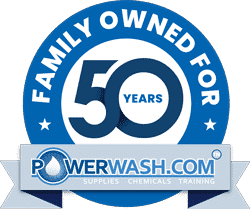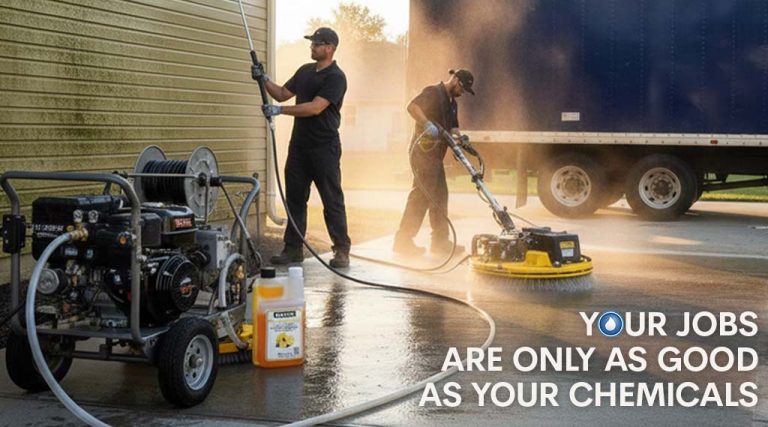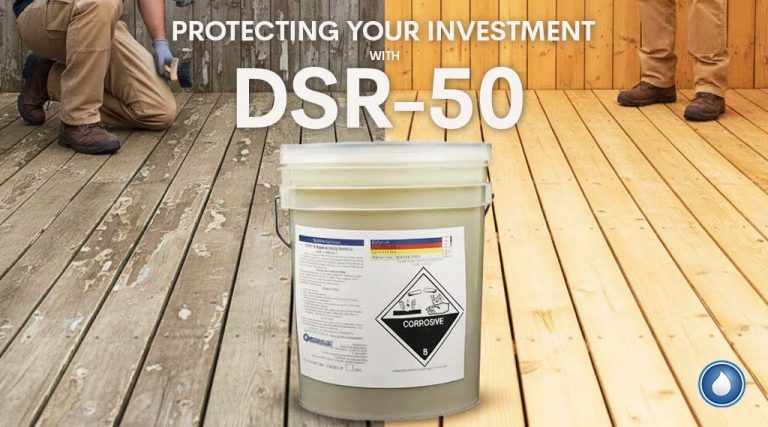From time to time professional pressure wash contractors run across a job where tried and true cleaning or restoration agents simply aren’t delivering their normal level of stain removal efficiency. For some reason the soaps just aren’t working to the accustomed level at this job site. While there may be several reason for this, such as temperature or dilution errors, a surprisingly common yet unidentified cause of diminished soap effectiveness is hard water.
Hard water? Isn’t that an oxymoron? Nope.
Actually, hard water is a very common problem, affecting water in more than 85% of the country. And this hard water is a silent pickpocket robbing unsuspecting pressure wash contractors of both time and money.
What is hard water?
Water gets “hard” as a result of the buildup of dissolved minerals such as calcium, magnesium and manganese. And how this hard water hurts pressure wash contractors is by reduced the foaming and cleaning abilities of soaps and detergents. And to make matters even worse, hard water also decreases rinsing efficiency, thus requiring extra time and effort to rinse away the soap that isn’t working up to full potential anyway. This one-two bang silently robs the pressure wash contractor of both time and profit.
What can I do if I have hard water?
If you suspect you have hard water, it can be tested. If you are using a public supply, call the local water superintendent or city hall and ask if the water is hard. If you are using a private supply, such as a well, collect a sample in an approved container and take it to a testing lab or send to your city or state health department for testing. You can also Google “water softeners” to get a list of local companies that can provide testing kits at low or at no cost to you.
Water is considered hard when it exceeds 3 grains per gallon (GPG). A GPG is equivalent to 17.1 PPM, so if the water is 171 PPM, then its hardness is 10 GPG. When results indicate the water is hard, there are a few options available. The most common way to soften water is through an ion-exchange water softener. This system works by exchanging positively charged hardness minerals (calcium and magnesium) with positively charged softness minerals (sodium or potassium) on a resin surface that is regenerated. This exchange of minerals softens the water.
If the water at the contractor’s shop is hard, he may want to consider installing an automatic softener. If the water at a specific job site is hard, then the contractor may want to consider a portable exchange. To choose a system that will fit your needs, it is best to Google “water softeners” and speak with representatives from different water softening companies.
Don’t let hard water pick your pocket. Being aware of a site’s water hardness can help the professional power wash contractor provide a realistic estimate in terms of time and money that will allow him or her to operate in a profitable manner.




